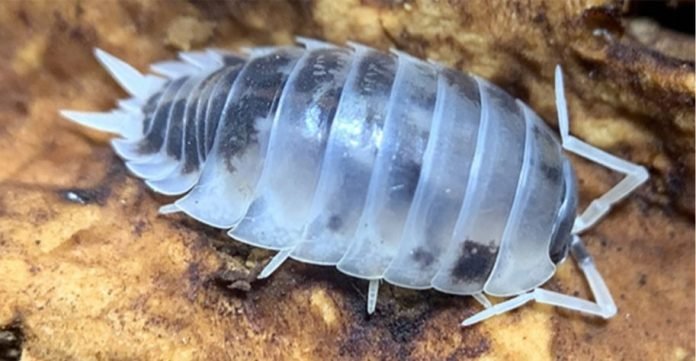Last Updated on March 2, 2025 by Bisma Sehar
When it comes to exotic pets, the first thing that may come to mind might be large, brightly colored snakes, playful ferrets, and majestic, loud parrots. However, there are other infrequently kept and acknowledged pets that have shells instead of scales and feathers and would rather hide under a rock than be displayed under a brightly lit terrarium. Regardless, they seem to make quite the positive impression on anyone who keeps them. Welcome to the world of isopods, a small crustacean that may just be the best pet you’ve never heard of.
Table of Contents
Why People Keep Isopods
In recent years pet fanciers of all kinds have come to know the benefits of keeping around these wonderful crustaceans. One of their most popular utilities is being the “cleanup crew” for various vivariums. This allows for your enclosure to be more self-sustaining by having natural processes manage animal/food wastes and pests. Isopods are also known to be a nutritious, mentally enriching snack for reptiles, small mammals, and arthropods.
Taking Care of Your Isopod
Deciding to keep and proliferate isopods is just the first step to reaching whichever goals you may have in keeping them. Understanding how to care for them properly over an extended period of time and ensuring that they form a healthy colony may take a little bit more time and effort than initially expected. With some basic husbandry and care tips, however, you will be making the most out of your isopod keeping experience in no time.
Housing
Unlike other pets that need extensive management and thought put into their enclosures, isopods require fairly little to be healthy and thrive. Simply put your colony in a small container with plenty of small holes for ventilation and a steady supply of leaf litter on the bottom. Mist occasionally to keep up humidity.
Feeding
While feeding an isopod colony is simple, you do want to make sure you’re doing it right. After all, you are looking to maintain a healthy colony for an extended period of time. Simply keep a constant supply of commercially available leaf litter, and supplement with various scraps and foods that are high in calcium, such as eggshells.
Breeding
Making sure that your isopods pass down their genes to the next generation will indeed be a large focus of keeping them. Especially if you’re trying to breed rare varieties of isopods or make your own line. While most isopods will thrive by simply having their needs met, some species of isopods for sale are a bit more difficult to handle. Some require highly specific conditions; others breed incredibly infrequently.
If you are trying to proliferate an exceptionally rare/difficult to keep species of isopod (such as the Rubber Ducky), it may be of benefit for you to seek out experienced breeders and keepers of that variety.
Final Thoughts
Isopods of all varieties make for a wonderful, easy to care for, useful, somewhat underappreciated pet. Regardless of which species of isopod for sale you may be looking for, chances are that you have the facilities and capability to care for them and see them thrive for many years.
Apart from that if you want to know about What Is an Axolotl then please visit our Pets category



























